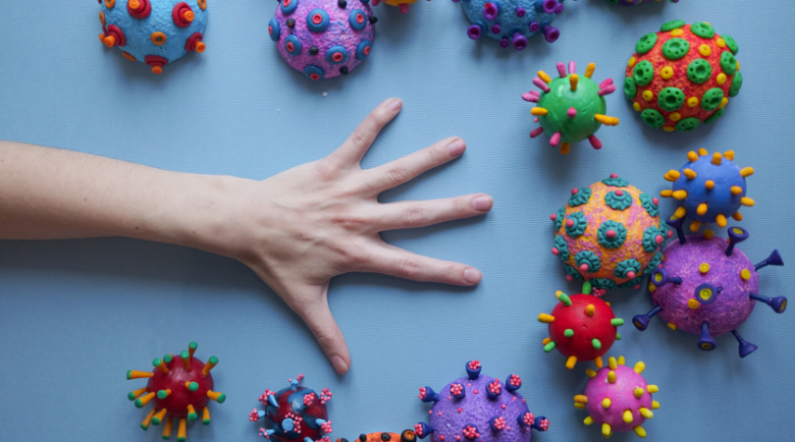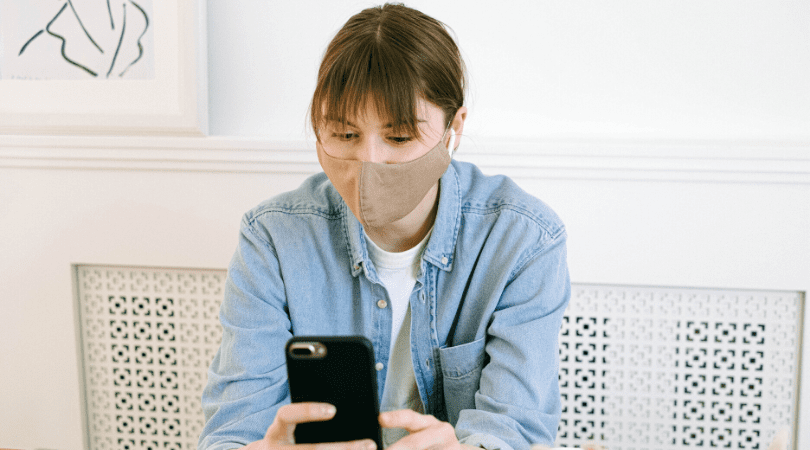Read on for an in-depth exploration into COVID symptoms and triggers and learn who is most susceptible to experiencing Coronavirus issues.
COVID Symptoms: What Triggers It, Who’s Most Susceptible, and How Does It Work?
As time goes on, more and more information is being uncovered regarding what triggers the severity of COVID symptoms, who may be more susceptible, and how the virus works.
New studies show that the coronavirus can set off something called a cytokine storm, which puts additional stress on your immune system and makes it harder to recover.
Here’s what you need to know about the coronavirus, including what triggers it, how it works, and who is most likely to become infected.
How Does The Coronavirus Work?
The coronavirus disease 2019, also known as COVID-19, belongs to a large family of viruses that cause upper respiratory symptoms similar to the common cold.
It works by invading the body and sneaking past the immune system to take over healthy cells. The part of your immune system that detects viruses is called the adaptive immune system.
There are two types of white blood cells that help target infections: T cells and B cells. These cells work together to get rid of infections, but they operate differently.
Both cells have a receptor on their surfaces. B cell receptors attach themselves directly to a virus or an infected cell in an attempt to kill it while T cells require other immune cells to break down the virus into smaller parts so that it can be engulfed.
T cells and B cells have more than one job and often help each other. Some T cells attack infected cells directly while others support the immune system by helping B cells make antibodies.
Viruses that enter the body sometimes disguise themselves by hijacking healthy cells so that they go unnoticed by T and B cells. This is how the virus spreads in our bodies and makes us sick.
What Triggers COVID?
COVID-19 has proven to be deadly for some by causing severe acute respiratory syndrome (SARS)-like symptoms while others appear to be completely unaffected.
In some cases, COVID patients seem to get better after a while, only to take a turn for the worse when they should be on the way to recovery.
Research shows that the coronavirus may trigger a cytokine storm in some people, which is a term used to describe a phenomenon that occurs when the immune system goes into hyperdrive and cannot shut itself off.
Cytokines refer to a group of proteins that play a role in immune and inflammatory responses. The immune system releases special cells to help fight a virus when it is first detected in the body.
Under normal circumstances, the immune system turns itself off once the infection starts to reside. However, during a cytokine storm, the immune system keeps running until it becomes exhausted.
This may lead to kidney, lung or liver failure, even among people with no underlying health conditions, as well as the worsening of COVID-19 symptoms.
Cytokine storms make us sick by disrupting the epithelial lining of the lungs, which permits bacteria to invade, and causes the need for the production of so many ventilators in the treatment against COVID.
Research shows that treating cytokine storms triggered by the coronavirus is an important part of beating the virus.
Studies show that you can help naturally prevent this from occurring by making sure you have proper vitamin D levels in the body, either by supplementation or by eating foods high in vitamin D. Vitamin D has also been shown to reduce the severity of the flu.
However, not everyone experiences these cytokine storms and many patients recover on their own. This can make it hard to know who is more likely to become sick.
 Whos Most Susceptible?
Whos Most Susceptible?
Despite being a new virus, research suggests that certain people might be more susceptible to the disease than others, especially those who already have an overactive immune system.
People with autoimmune diseases already experience a similar version of a cytokine storm due to their overactive immune response. This can lead to the worsening of coronavirus symptoms whereas someone without an autoimmune disease might not experience symptoms at all.
Autoimmune conditions, such as Hashimoto’s disease, Crohn’s disease, and rheumatoid arthritis, occur when the body mistakes its own tissues and cells as foreign invaders and tries to attack them.
This sends the immune system into overdrive, much like a cytokine storm triggered by an overreaction to the coronavirus, and can lead to accelerated COVID symptoms in the lungs.
Other factors that may increase the likelihood of becoming infected include allergies, both airborne and within food, and bacterial overgrowth, such as in the case of Candida Albicans infections.
This is because these conditions are already linked to an altered immune response. bacteria that is already in the body is more likely to cause an infection when a virus is present.
Additionally, research shows that the coronavirus may lead to autoimmune and autoinflammatory diseases, which suggests that COVID may lead to an overactive immune response in people who were previously undiagnosed with an autoimmune disease.
Those with underlying health conditions are also at an increased risk of showing severe symptoms. According to one study, the rates of hospitalization were six times higher for COVID patients with underlying conditions, such as heart disease, chronic lung disease, and diabetes, when compared to those without these conditions. The rates of death among these patients were 12 times higher than their healthy counterparts.
Conclusion
The coronavirus is still a relatively new virus, despite taking over the entire globe within a matter of months. However, research shows that the virus may be more likely to affect those with underlying conditions, such as autoimmunity, diabetes, heart disease, and lung conditions.
The symptoms of COVID-19 may be worsened by a cytokine storm that occurs when the immune system launches into overdrive and cannot be turned off. However, research shows that vitamin D supplementation may help control this response and can be used to reduce the severity of the flu.
Take control of your Immune Health with our FREE Immune Health Toolkit ebook.
Download today!

